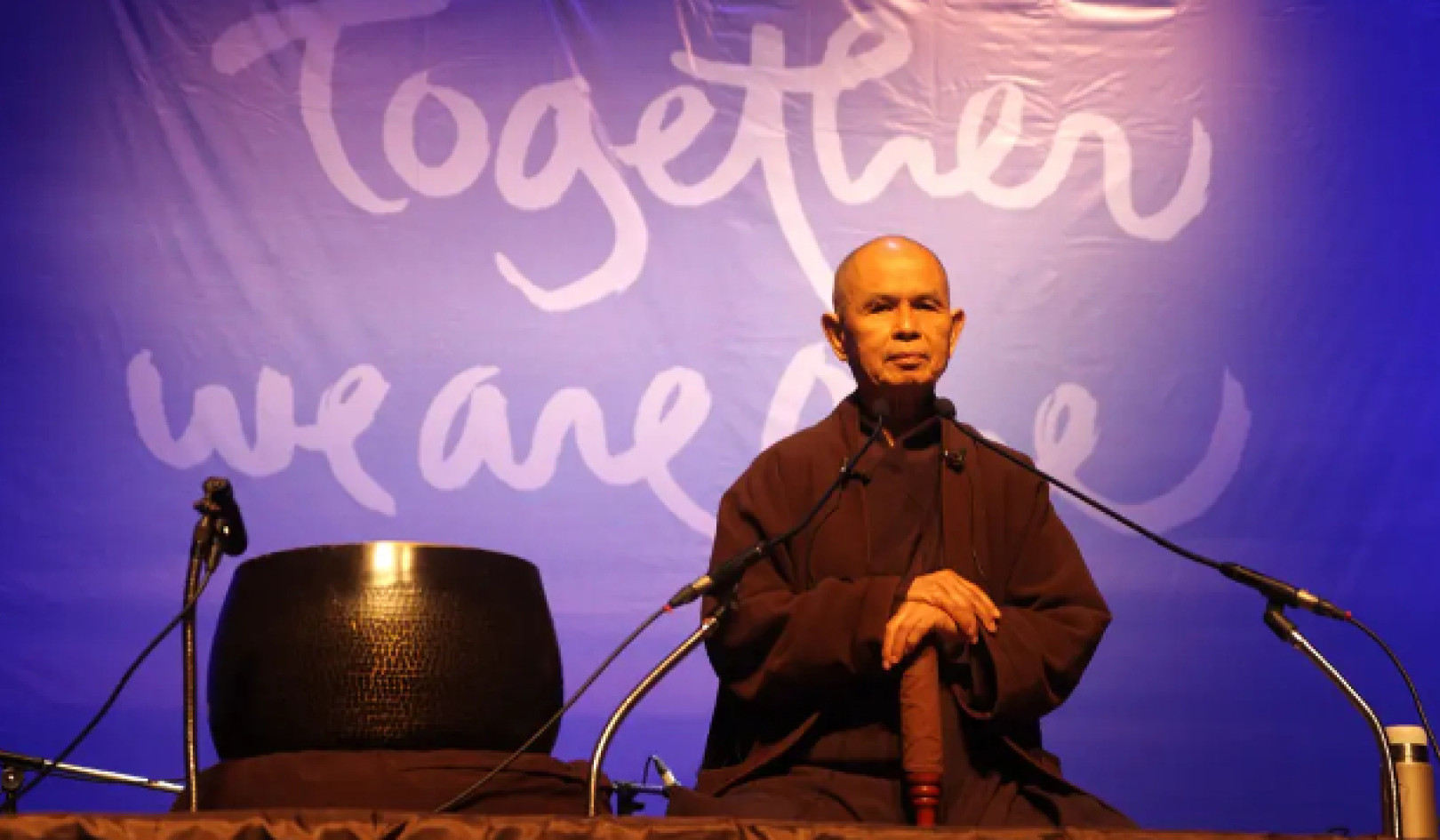
時代が不確かなとき、人々は陰謀論のコミュニティに引き寄せられます。 M.モイラ / Shutterstock.com
In the era of social media, conspiracy theories feel more prominent and prevalent than ever before.ソーシャルメディアの時代では、陰謀説はかつてないほど顕著で普及していると感じています。 Most recently, the high level of uncertainty surrounding the COVID-19 pandemic, combined with people's desire to make sense of a new reality, spawned a range of new conspiracy theoriesごく最近、COVID-XNUMXパンデミックを取り巻く高レベルの不確実性が、新しい現実を理解したいという人々の願望と相まって、一連の新しい陰謀説を生み出しました。 また、既存のものを強化しながら。 These fuelled the spread of misinformation about the virus, giving succour toこれらはウイルスに関する誤った情報の拡散を助長し、 アンチマスクグループ.
QAnonのフォロワーは ドナルド・トランプによって暗黙のうちに承認された –陰謀説が彼らの救世主として都合よく見ている人。
私の最近の本では、 分裂する力、私は政治家が最も過激で法外な立場を取ることからどのように利益を得るかを説明します。 They can capitalise on the claims made by conspiracy theorists, to antagonise certain groups, bolster their identity and, ultimately, convert them into loyal voters.彼らは陰謀論者による主張を利用して、特定のグループに敵対し、彼らのアイデンティティを強化し、最終的には彼らを忠実な有権者に変えることができます。
調査によると、人々は陰謀説に賛同する時期があります ストレスと不確実。 In these situations people tend to make less accurate judgements about the validity of the information they are given.このような状況では、人々は与えられた情報の有効性についてより正確でない判断を下す傾向があります。 But believing in conspiracy theories also makes people feel part of something bigger than themselves, and provides them with a tribe to belong to.しかし、陰謀説を信じることはまた、人々に自分よりも大きな何かの一部を感じさせ、彼らに所属する部族を提供します。
私の中で 本、これら両方の問題に同時に対処するための潜在的な解決策について説明します。 In particular, I build on Finland's recent experience of combating the spread of fake news and conspiracy theories by teaching critical thinking in school.特に、私は学校で批判的思考を教えることによって、偽のニュースや陰謀論の広がりと戦うフィンランドの最近の経験に基づいています。
彼らが若いうちにそれらを取得します
Lots of governments fund specific agencies to fight for the truth and try and counter the spread of conspiracy theories.多くの政府は、真実のために戦い、陰謀論の広がりに対抗するために特定の機関に資金を提供しています。 The US for example, has theたとえば、米国には グローバルエンゲージメントセンター、ソーシャルメディアの起源を調達し、場合によっては反メッセージを出すことによって、ソーシャルメディア上の意見を操作する試みに従事しようとします。 But the level of information and speed with which it can spread on social media – along with a president who peddles conspiracy theories – has made their mission difficult, to say the least.しかし、それがソーシャルメディア上で広まることができる情報のレベルとスピードは、陰謀論を捏造する大統領とともに、控えめに言っても彼らの使命を困難にしました。
What's more, conspiracy theories thrive on distrust of the government.さらに、陰謀説は政府の不信に基づいて繁栄します。 As a consequence, these official agencies often struggle to contain the spread of fake news.結果として、これらの公的機関は、偽のニュースの拡散を封じ込めるのに苦労することがよくあります。
フィンランドは 大幅に異なるアプローチ。 After seeing the damage done by the fake news spread in neighbouring Russia, the Finnish government set up a plan to teach critical thinking in secondary school in 2014. It integrated media literacy into the curriculum and got students to exercise their critical thinking when collecting information on a specific topic.近隣のロシアで偽のニュースが広まったことによる被害を見て、フィンランド政府はXNUMX年に中等学校で批判的思考を教える計画を立てました。それはメディアリテラシーをカリキュラムに統合し、学生に情報を収集するときに批判的思考を行使させました特定のトピック。 The source is assessed, and so is the content.ソースが評価され、コンテンツも評価されます。
Students are also trained to critically evaluate statistics and numbers.学生はまた、統計と数値を批判的に評価するように訓練されています。 These can be particularly confusing or intimidating to critique – and we naturally tend to give them legitimacy.これらは特に批判を混乱させたり威嚇したりする可能性があります-そして私たちは当然それらに正当性を与える傾向があります。 But the Finnish experience proves that giving citizens the confidence to debunk conspiracy theories themselves is more effective than providing them with the right information.しかし、フィンランドの経験は、市民に陰謀論自体を暴く自信を与えることが、正しい情報を提供するよりも効果的であることを証明しています。
 誤った情報を指摘する。 タイラーオルソン/シャッターストック
誤った情報を指摘する。 タイラーオルソン/シャッターストック
普遍的な価値観の補完的な役割
But another challenge is looming – and critical thinking is not enough.しかし、もうXNUMXつの課題が迫っています。そして、批判的思考だけでは不十分です。 Followers of conspiracy theories, whether they believe in QAnon or that the world is flat, are often drawn to the community element of conspiracy theories.陰謀論の信者は、QAnonを信じているか、世界が平坦であるかを問わず、陰謀論のコミュニティ要素に惹かれることがよくあります。 They feel like they belong to a select group, which makes them feel unique and special.彼らは彼らが選ばれたグループに属しているように感じ、それは彼らをユニークで特別な気分にさせます。 They believe they have access to exclusive and well-guarded knowledge, which makes them feel distinctive.彼らは、彼らが独特であると感じさせる排他的でよく守られた知識へのアクセスを持っていると信じています。
これらのアイデアはの中心にあります 社会的アイデンティティ理論 in psychology research.心理学研究で。 This is the idea that our perception of ourselves as individuals is driven by the groups we belong to and the identity that they have.これは、個人としての私たちの認識は、私たちが属するグループと彼らが持っているアイデンティティによって駆動されるという考えです。 A group of conspiracy theorists is attractive because it is seen as holding a superior truth against others – effectively,陰謀論者のグループは、他の人に対して優れた真実を保持していると見なされているため、魅力的です–事実上、 知識の高み.
Finnish authorities understood this.フィンランド当局はこれを理解していました。 Their secondary school programme also focused on reminding pupils of the important universal values彼らの中等学校のプログラムはまた、生徒に重要な普遍的な価値観を思い出させることに焦点を当てていました フィンランド社会に支持されている。 These include fairness, the rule of law, respect for others' differences, openness and freedom.これらには、公平性、法の支配、他者の違いの尊重、開放性、自由が含まれます。 Together, these are a powerful lens to exercise their critical thinking – students are called to make sense of information with these values in mind.一緒に、これらは彼らの批判的思考を行使するための強力なレンズです–学生はこれらの価値観を念頭に置いて情報を理解するように呼ばれます。
Ultimately, students are reminded of all the good things about being Finnish and that they already belong to group with a positive identity.最終的に、学生はフィンランド人であることのすべての良い点と、彼らがすでに前向きなアイデンティティを持つグループに属していることを思い出します。 This throws the identity benefits of believing in conspiracy theories into question.これは、陰謀論を信じることのアイデンティティの利点に疑問を投げかけます。 Plus, their Finnish identity becomes more salient as they question and identify fake news.さらに、彼らが偽のニュースに疑問を投げかけ、特定するにつれて、彼らのフィンランド人のアイデンティティはより顕著になります。 Critical thinking and countering misinformation is what makes them part of a group they can be proud of.批判的思考と誤った情報への対抗は、彼らを誇りに思うことができるグループの一員にするものです。
A 2019年の調査結果 that Finnish pupils are much better at identifying fake news than their US counterparts.フィンランドの生徒は、米国の生徒よりも偽のニュースを特定するのにはるかに優れています。 But the real benefits will take years to study, not least because Finland's programme only really ramped up in the last couple of years.しかし、フィンランドのプログラムはここ数年で実際に増加しただけなので、本当のメリットは研究するのに何年もかかります。
The spread of conspiracy theories will not be stopped by simply giving younger generations the right training to engage in fact-checking, or collect evidence-based information.陰謀説の普及は、ファクトチェックに従事したり、証拠に基づいた情報を収集したりするための適切なトレーニングを若い世代に与えるだけでは止まりません。 The reality of conspiracy theory groups is that they represent fragmented parts of our society – their very existence is made possible by social exclusion.陰謀論グループの現実は、彼らが私たちの社会の断片化された部分を表しているということです–彼らの存在そのものが社会的排除によって可能になります。 So we must teach critical thinking alongside ensuring people feel part of a broader community.したがって、人々がより広いコミュニティの一部であると感じられるようにするとともに、批判的思考を教える必要があります。![]()
著者について
トーマス・ルーレ、組織論の上級講師および社会学のフェロー、ガートン・カレッジ、 ケンブリッジ・ジャッジ・ビジネス・スクール
この記事はから再公開されます 会話 クリエイティブコモンズライセンスの下で 読む 原著.
























